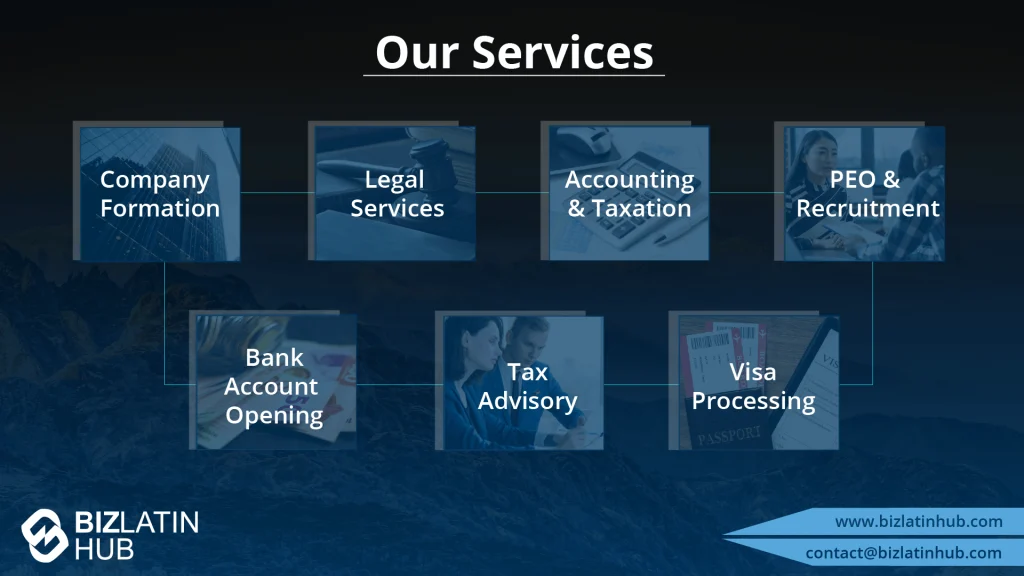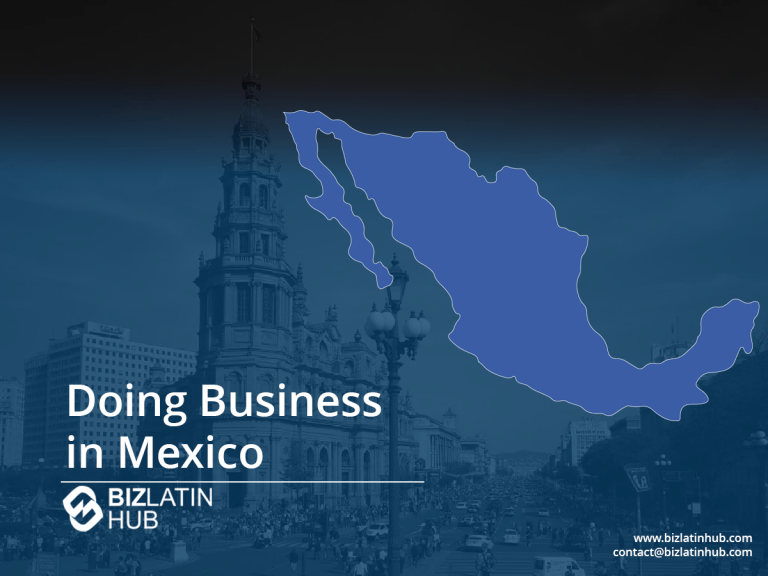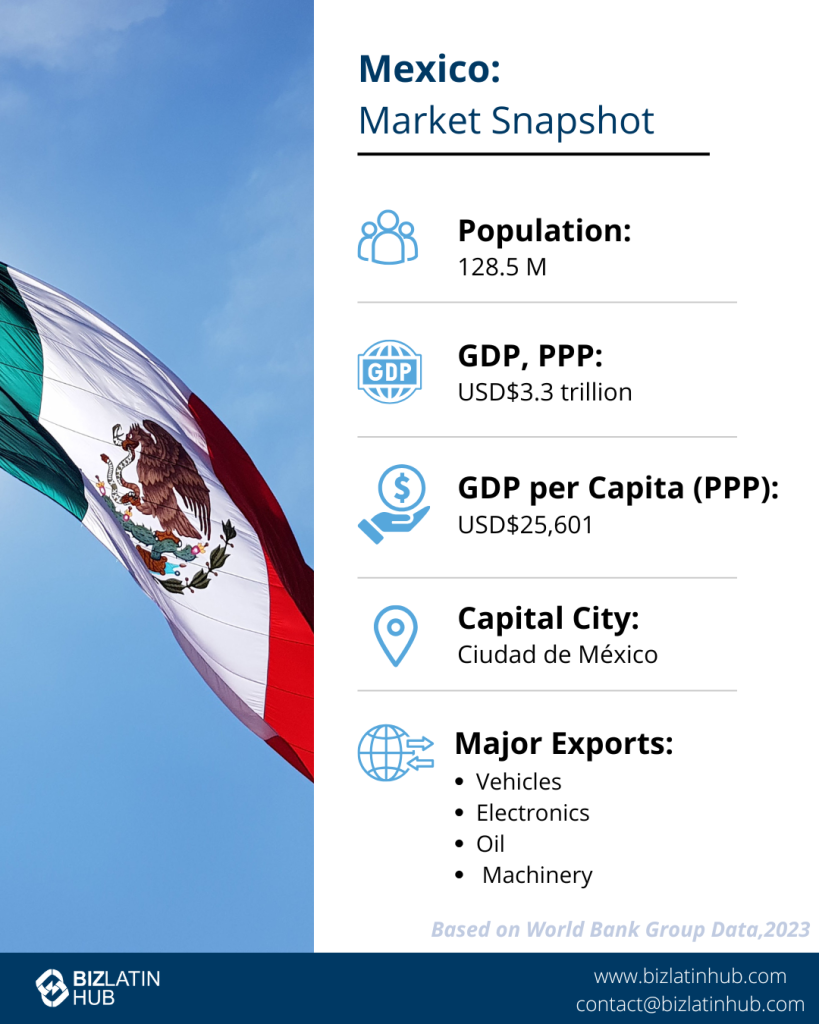
It could be said that for every company that quits China amid heightened tensions with the US and a de-facto trade war between the two powers, there’s a company ready to nearshore in Latin America. Nearshoring in Mexico is perhaps the most visible place to see this. Businesses are flocking to the country to ensure secure shipping routes and logistical connections.
A growing number of US companies sooner or later realized they couldn’t rely on China. Disruptions in global supply chains brought on by a variety of global events have led many companies to move their operations closer to home. Expanding a presence to countries with proximity to a company’s customer base, seemed like a logical move for many. More often than not, nearshoring in Mexico has become the country of choice.
For any large decision, such as where precisely you want to be nearshoring in Mexico, you can get only so much information from Google searches and phone calls with associates south of the border. That’s why it’s essential to hire a legal representative in Mexico to provide businesses with on-the-ground expertise and straightforward answers. At Biz Latin Hub we can help you expand fast.
6 benefits of nearshoring in Mexico
- Lower cost of labor
- Shorter supply chain
- Existing free trade pact with the US, Canada
- A large pool of skilled workers
- Strong intellectual property regime
- Well-developed business infrastructure
Let’s take a more detailed look at the benefits of nearshoring in Mexico.
1. Lower labor costs
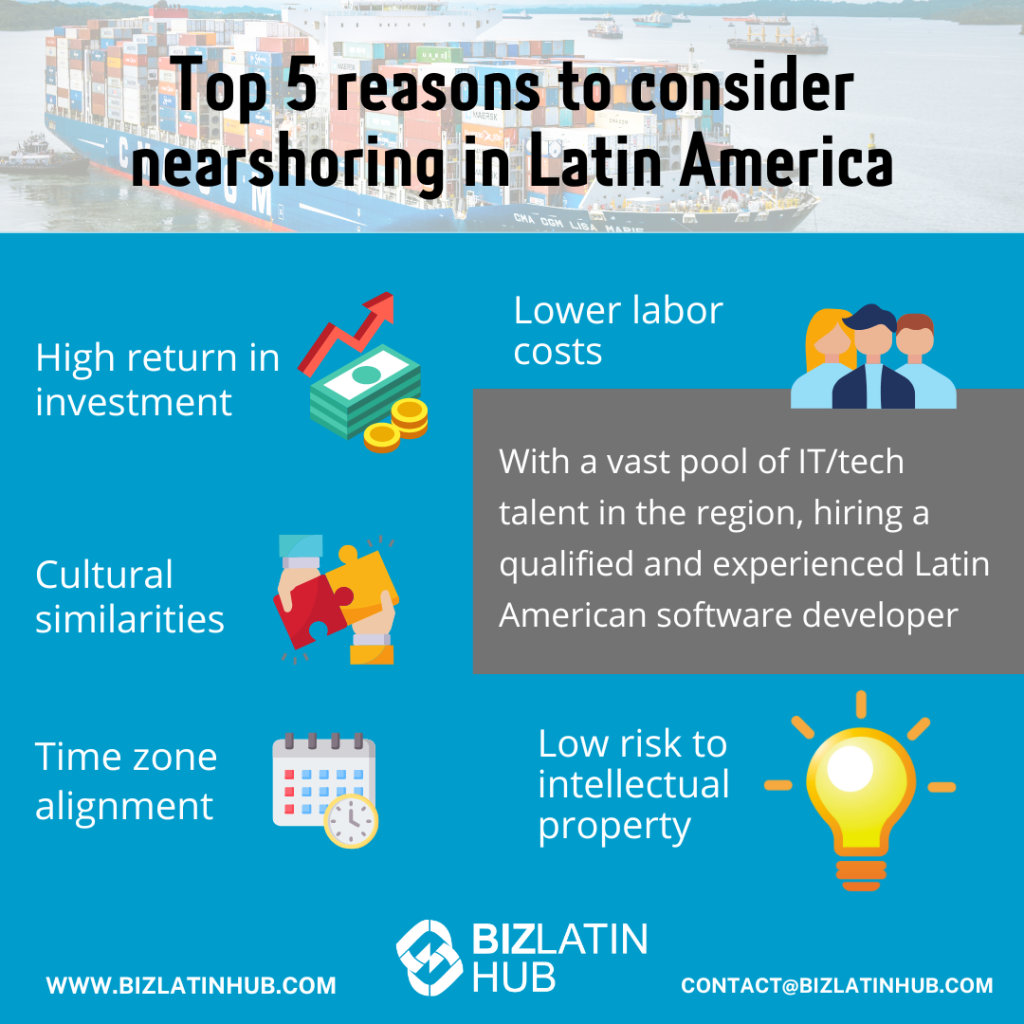
The driving factor or any nearshoring/outsourcing calculus. In Mexico, manufacturing wages, for example, are, on average, about USD$4 an hour, compared with USD$30 an hour for American workers. This business logic is clear. Also, doing business in China is not as cost-effective as it used to be. Wages in the Asian giant have doubled on average over the past few years.
2. Shorter supply chain
It’s no secret that global supply chains have been fraught with problems in recent years; some have called it a supply-chain crisis. US companies don’t have to worry about travel or border restrictions when nearshoring to Mexico. Lower transportation costs and a shorter geographical distance mean products reach markets much faster.
3. Free trade agreement with the US and Canada
Mexico is the third-largest trading partner of the US thanks to the United States-Mexico-Canada Agreement (USMCA), which evolved out of the old NAFTA trade pact. The trade agreement makes it easier for US companies to invest in the Mexican market and open operations there. It also allows for a freer flow of products and services across the borders of all three countries.
4. Large pool of skilled workers
Another benefit of nearshoring in Mexico is the country’s large pool of highly qualified and educated workers, particularly in manufacturing and tech. The universities turn out tens of thousands of engineering graduates each year. Their growth sectors have also graduated from basic assembly to more sophisticated industries such as R&D, product design, and medical device.
5. Strong intellectual property regime
As the US continues to be a world leader in innovation, intellectual property (IP) and copyright protections are crucial. The USMCA agreement, which came into effect in 2018, establishes a robust protection regime for IP, copyrights, patent protection, and a specific subset of protections for agricultural and pharmaceutical innovations.
6. Developed industrial infrastructure
The Mexican government has invested heavily in developing its infrastructure. Nearshoring in Mexico means businesses will have access to developed industrial areas, quality roads, and all essential building/structural utilities that an overseas company might need to begin operations.
Will nearshoring in Mexico have a strong future?
So, for nearshoring in Mexico, in terms of the benefits it offers to foreign companies, entrepreneurs, and investors and the economic growth it brings to the country – the trend has nowhere to go but up. But what are industry observers and analysts predicting for nearshoring in the future?
According to the analysts at the industry group Tech Behemoths, here are just a few things they are predicting for nearshoring in Mexico as it relates to the IT/tech sector:
- Skyrocketing demand for nearshoring services – The need for services in Mexico is expected to grow significantly, driven by companies looking to reduce costs while gaining access to skilled professionals.
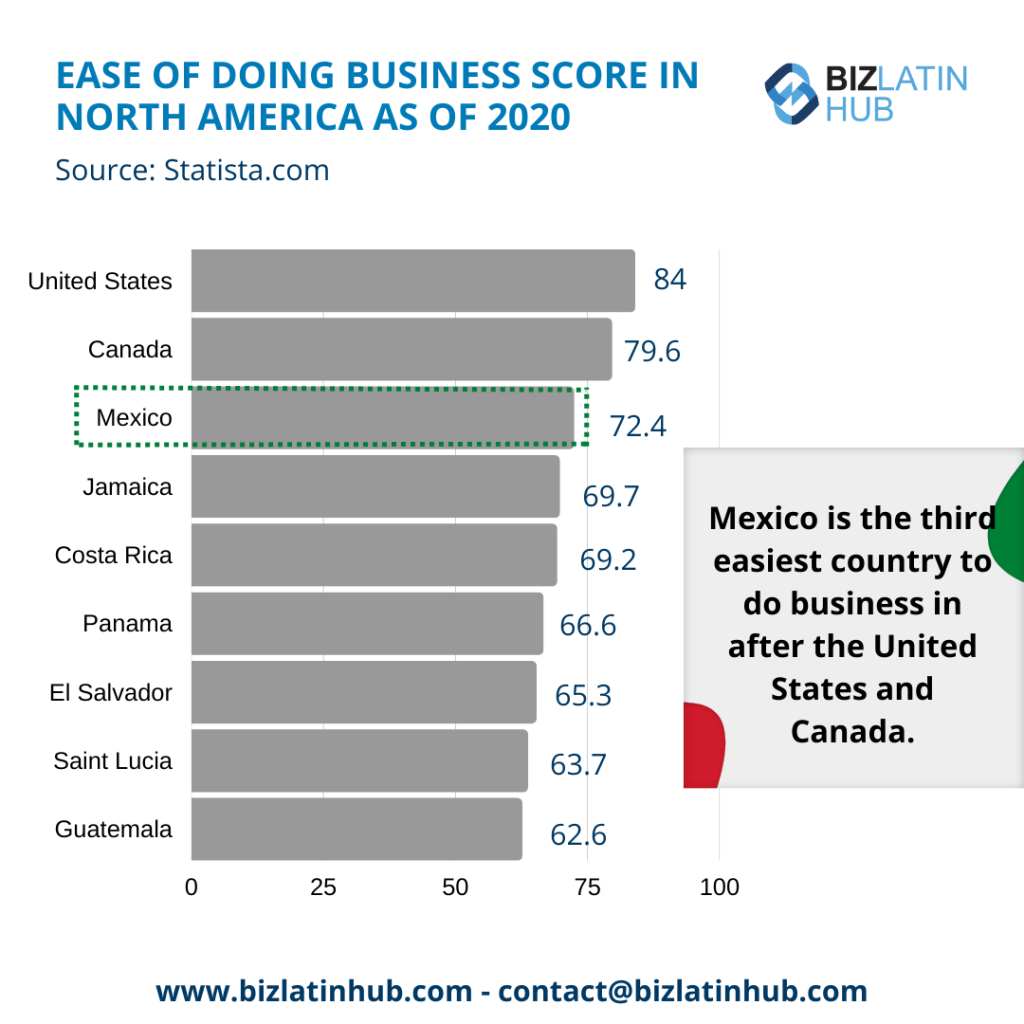
- Increased IT specialization – Mexico is expected to become more specialized in software development. More Mexican software developers will be qualified to perform various specialized, niche services. The companies they work for will see more excellent business, as few rivals can match their highly competitive position in the market.
- Improved nearshoring practices – Mexico will likely improve its nearshoring practices, offering more transparent and cost-effective solutions for foreign businesses. The government has already made moves toward the development of a Code of Ethics for the industry centered around the protection of IP rights across borders.
FAQs on nearshoring in Mexico
What is the objective of nearshoring in Mexico?
The objective of nearshoring is to reduce costs and maintain fluid and effective communication with the work team, which can be more difficult to achieve when working with countries that are far apart. It also helps to be working with friendly and stable countries to avoid supply line issues.
What advantages will I get by nearshoring in Mexico?
There are many advantages for different companies, but the six most common advantages of nearshoring in Mexico are:
1. Lower cost of labor
2. Shorter supply chain
3. Existing free trade pact with the US, Canada
4. A large pool of skilled workers
5. Strong intellectual property regime
6. Well-developed business infrastructure
How does nearshoring differ from offshoring in Mexico?
Nearshoring involves outsourcing to nearby countries, such as Mexico, while offshoring typically involves outsourcing to more distant locations, often overseas. This means that it is perfectly set up for North American companies in particular.
What industries are suitable for nearshoring in Mexico?
Industries such as manufacturing, IT services, customer support and software development have found success with nearshoring in Mexico due to their skilled labor and cost efficiency.
Is nearshoring suitable for startups in Mexico?
Yes, nearshoring in Mexico can benefit startups by providing access to cost-effective talent, scalable solutions, and proximity to major markets.
How can companies mitigate security risks when nearshoring in Mexico?
Companies can mitigate security risks by conducting thorough risk assessments, choosing secure locations, implementing robust security measures, and staying informed about local conditions. That’s why it’s important to work with a local expert such as Biz Latin Hub.
Biz Latin Hub can help you with nearshoring in Mexico
At Biz Latin Hub, we provide integrated market entry and back-office services throughout Latin America and the Caribbean, with offices in over a dozen other major cities in the region. We also have trusted partners in many other markets.
Our unrivalled reach means we are ideally placed to support multi-jurisdiction market entries and cross border operations.
As well as knowledge about nearshoring in Mexico, our portfolio of services includes hiring & PEO accounting & taxation, company formation, bank account opening, and corporate legal services.
Contact us today to find out more about how we can assist you in finding top talent, or otherwise do business in Latin America and the Caribbean.
If this article on nearshoring in Mexico was of interest to you, check out the rest of our coverage of the region. Or read about our team and expert authors.
